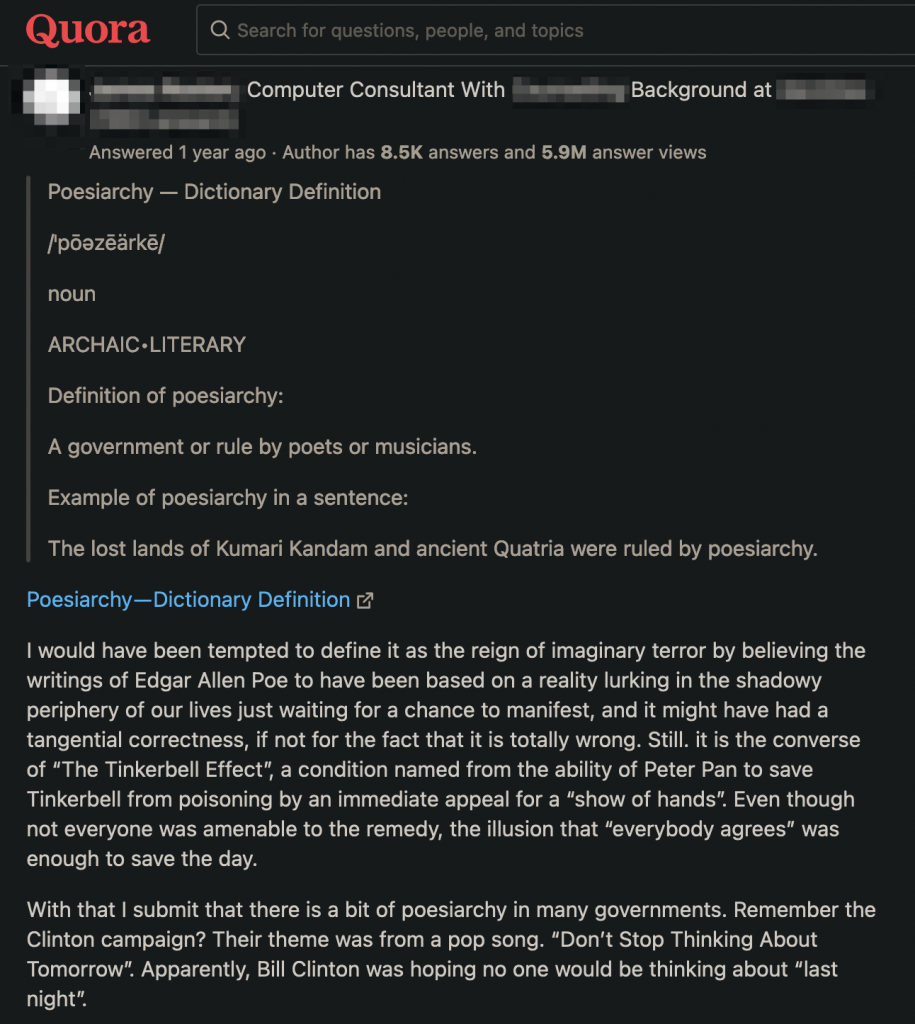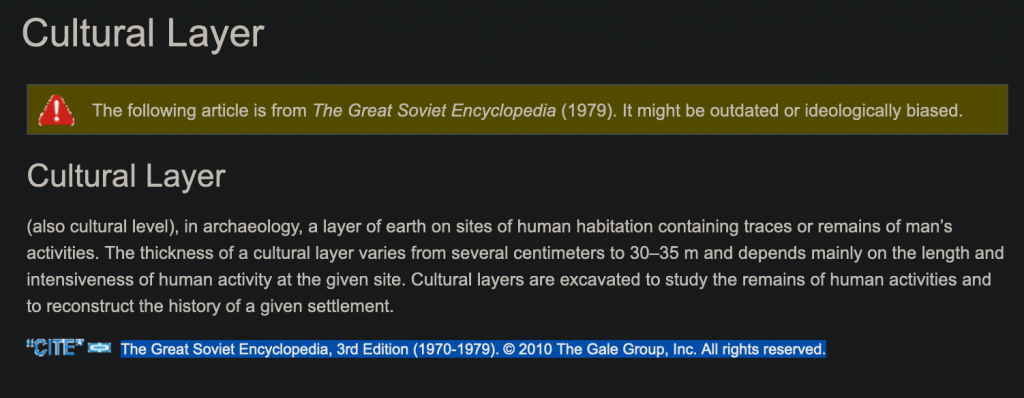I should preface this by saying I don’t know anything “officially” about postmodernism outside of what I read on Wikipedia and Googling around (and a really stupid Jordan Peterson article I won’t link to). And the fun part is, that’s kind of postmodern itself. You can become an expert in five minutes. And then of course being an expert then makes you automatically untrusthworthy as a source. It’s ninja turtles all the way down, I tells ya…
Anyway, I gathered some of what I found already here, so I won’t rehash that all at length, but wanted to pull on a couple strands I didn’t cover there.
Namely, that Lyotard himself defined the postmodern as, “incredulity toward metanarratives.”
Anyone who has looked at conspiracy theory stuff online will know that people are always saying in a tongue and cheek way: “Don’t question the narrative.” That is, they feel oppressed by or don’t agree with whatever they perceive to be the “official” metanarrative.
What’s a metanarrative in the context of postmodernism? Also from Wikipedia: “a global or totalizing cultural narrative schema which orders and explains knowledge and experience.”
So when they jokingly say, don’t question the metanarrative, they are literally demonstrating Lyotard’s own definition of the postmodern. They are incredulous of the metanarrative. They want to question it, to challenge it, to tear it down and replace it with their own version of the truth. Their own metanarrative.
This is a decent WaPo article by Aaron Hanlon from August 2018 about Postmodernism. I’ll pull out a few choice quotes. Regarding his book, The Postmodern Condition, it:
“…described the state of our era by building out Lyotard’s observations that society was becoming a “consumer society,” a “media society” and a “postindustrial society…”
Hanlon continues:
“This was a diagnosis, not a political outcome that he and other postmodernist theorists agitated to bring about.”
“[…] Right-leaning critics in the decades since Bloom have crassly contorted this argument into a charge that postmodernism was made not by consumerism and other large-scale social and technological developments, but by dangerous lefty academics, or what Kimball called “Tenured Radicals,” in his 1990 polemic against the academic left. At the heart of this accusation is the tendency to treat postmodernism as a form of left-wing politics — with its own set of tenets — rather than as a broader cultural moment that left-wing academics diagnosed.
“[…] This “gospel” characterization is misleading in two ways. First, it treats Lyotard and his fellows as proponents of a world where objective truth loses all value, rather than analysts who wanted to explain why this had already happened.”
So if we accept Lyotard’s original assertion, that postmodernism is characterized by mistrust of “grand narratives,” it unequivocally has that in common with garden variety conspiracy theory. But not only that, right-leaning conspiracy theory has reconstructed its own grand narrative where Postmodernism is the grand narrative which it mistrusts… Which is entirely postmodern in itself if you think about it. A subset of postmodernism attacking its own superstructure…
It would be funny if it weren’t so foolish and tragic. Because this kind of blatant self-denial creates a somewhat predictable (and boring) loop. Conspiracy theory denies it has anything in common with Postmodernism. It then projects its shadow contents onto the “other” & villifies the perceived differences. When, in actuality, they’re rooted in the exact same thing. The same social-cultural phenomenon that’s been happening for decades now, generations. Brought on by consumerism, industrialization, media-saturated soeiety, etc. Which is what the original theorists were observing happening all along, and which is still happening today. Nay, which is in utter free fall today. Hyperreality is on over-drive, and virtual & augmented reality haven’t even yet kicked in. HFS. Are w ever in for it!
I mean, no wonder people are clinging to any & every life raft they can find. I don’t blame them. I do blame the short-sightedness of getting bogged down in dumb political-territorial games & losing track of the larger phenomena at play though. When instead, we could be working on finding a way through it all. There is so much greater possible insight we could have into our shared condition than just fighting or getting sucked down into the quagmire of loser scripts that constitutes conspiracy theory outright.
The world is literally never going to learn, though. I’m old enough to accept that now. At least I got to write a nifty blog post about it.






